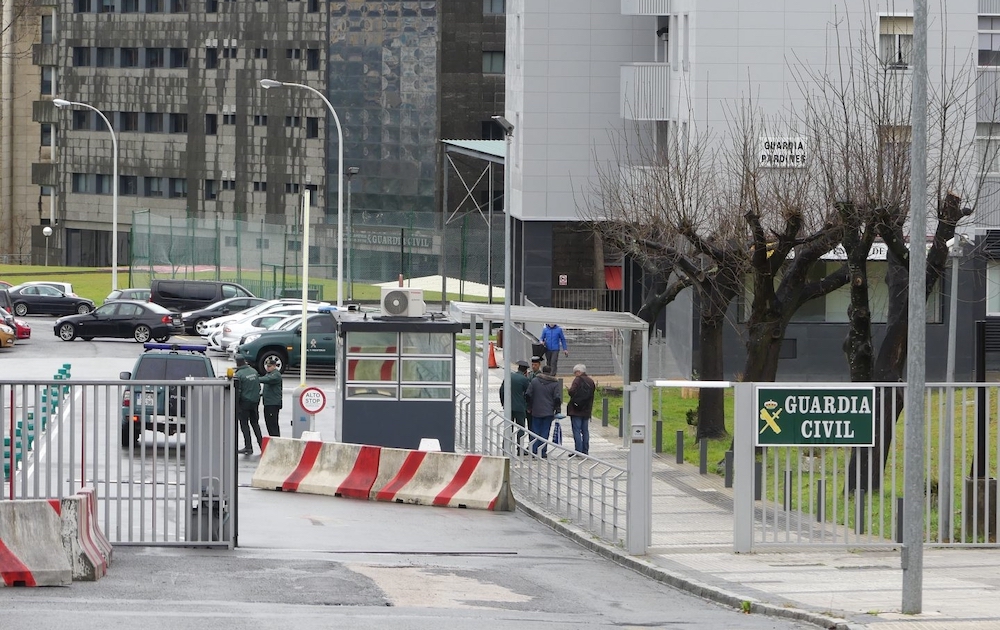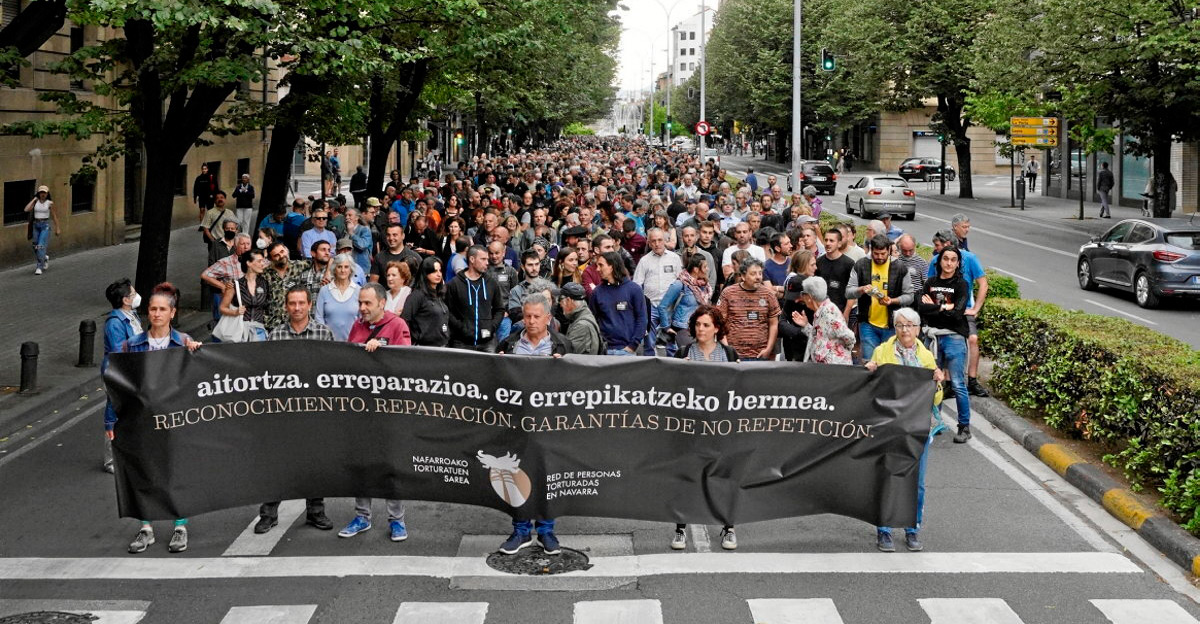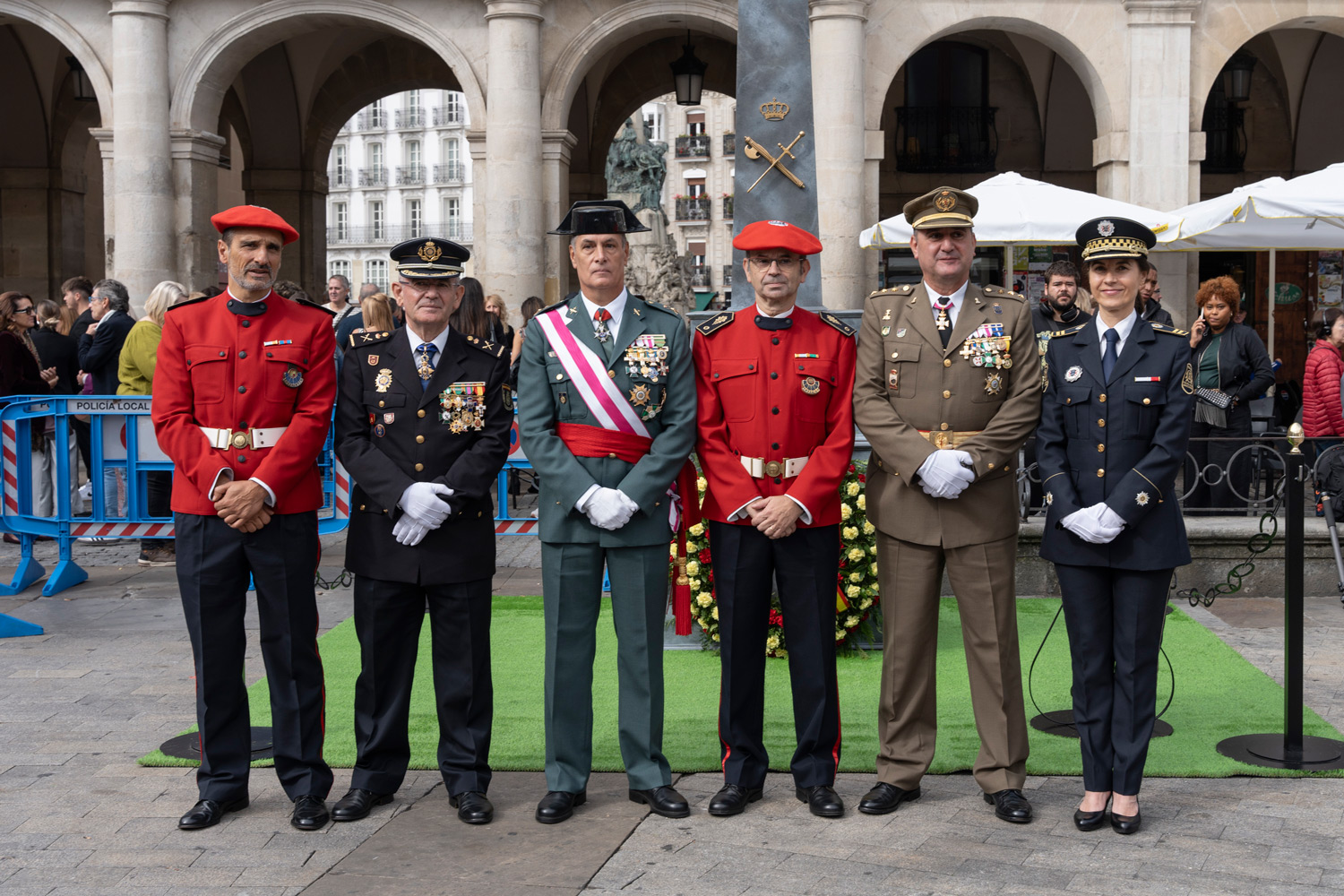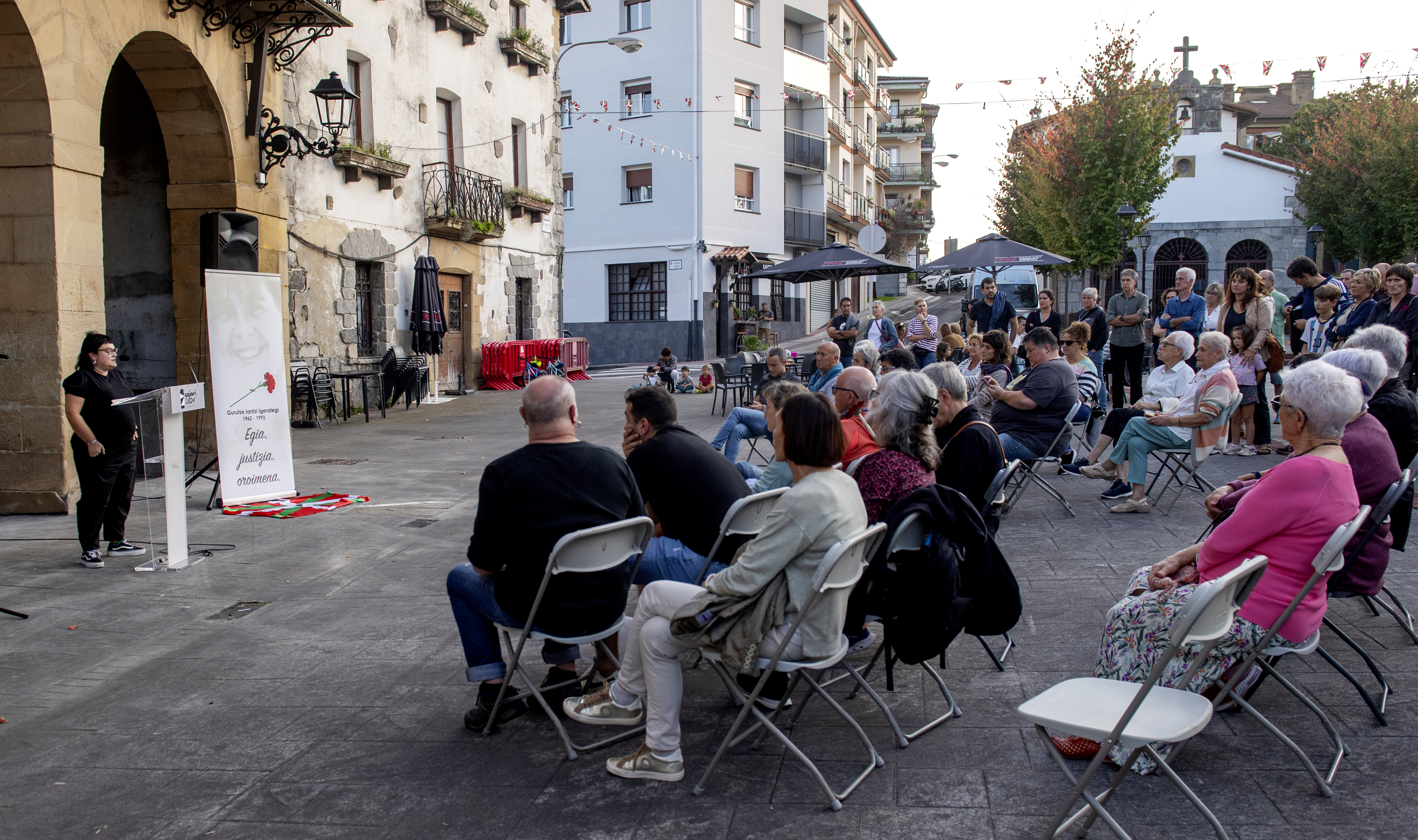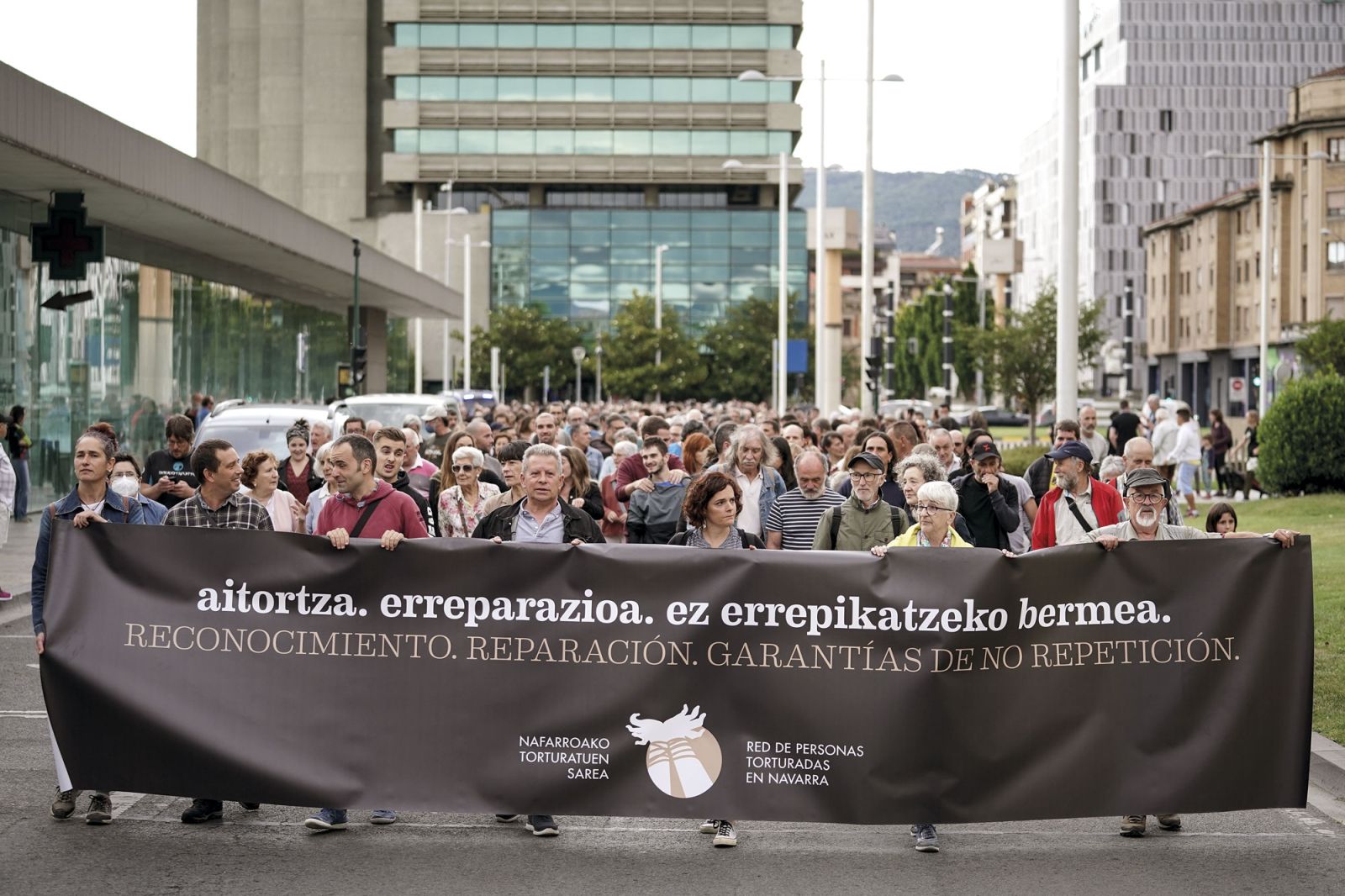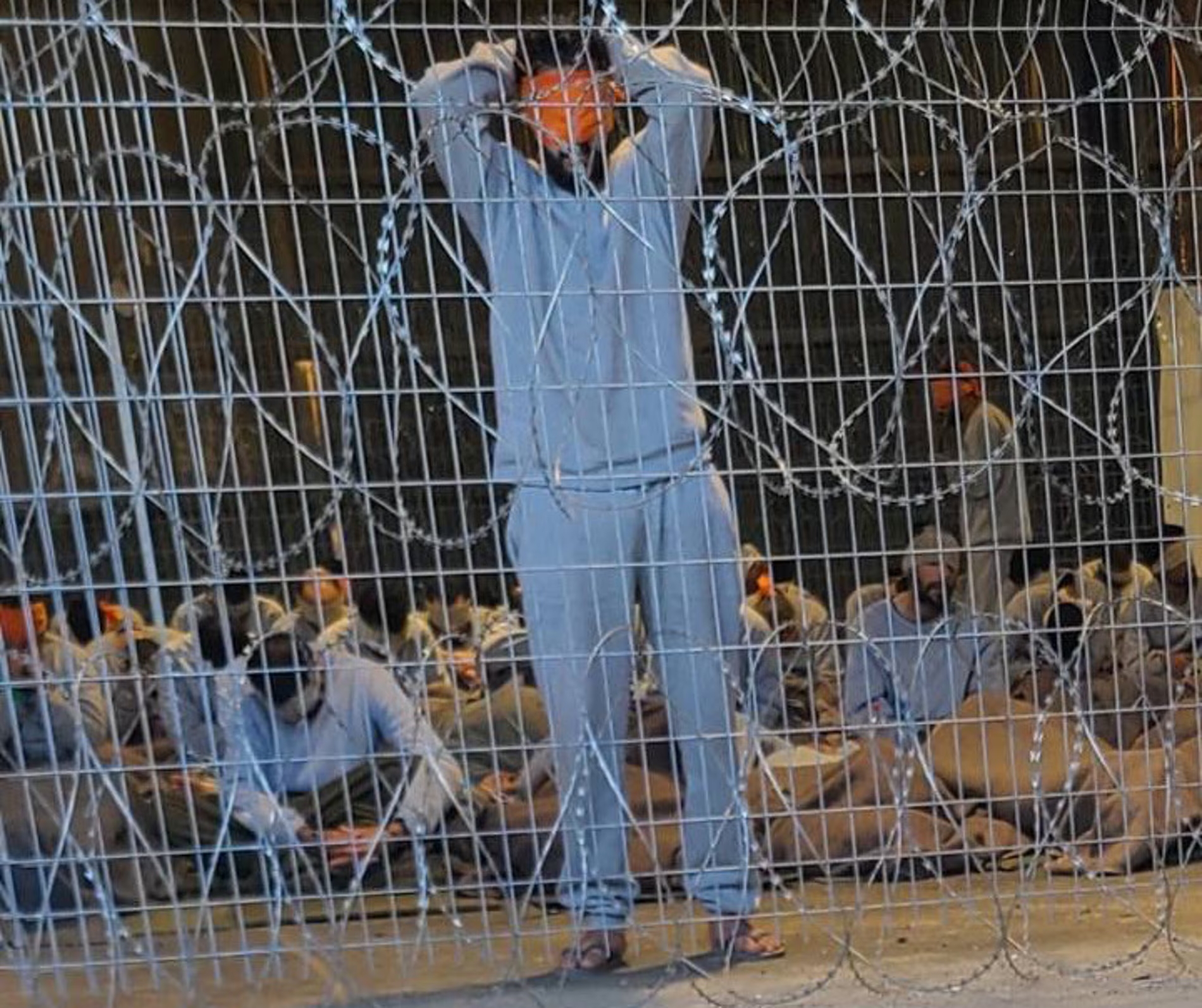Sortu reproaches the Civil Guard and the PSOE in Intxaurrondo who have never explained what they did to Zabraise
- Dozens of people have come to Tuesday afternoon, when 35 years later the body of Mikel Zabraise appeared in front of the Civil Guard headquarters in Intxaurrondo. "PSOE, Civil Guard: You owe us the truth," they have reproached them that after so many years no one has given explanations. "We demand the end of the 35 years of impunity and truth, justice and reparation that have taken place around the murder of Mikel Zabraise and we call for the necessary steps to be taken for the Civil Guard to leave Euskal Herria as soon as possible," they explained in the paper.

On 26 November, 35 years have passed since the Civil Guard arrested the citizen of Orbaizeta Mikel Zabraise at her home in Altza. In the same police operation, three other persons were arrested, including Idoia Aierbe, a neighbour of Bidebieta (Donostia-San Sebastián), who was seriously injured. They were released without conditions and reported that they had been tortured. However, Mikel Zabraise never appeared alive. Almost a month later, on 15 December, his body appeared on the Bidasoa River with obvious signs of torture, according to the same source. According to the official version, the man fled from the hands of the civil guard and, during the flight, he threw himself into the river, despite not knowing how to swim and have his hands tied.
Sortu de Donostia-San Sebastián has asked for explanations from the PSOE and the Civil Guard who then ruled during the concentration that took place in Intxaurrondo. Dozens of people have joined the demonstration, which has been monitored by an Ertzaintza van.
In his words, no one dares to lie today, but the official confession does not come. They recalled that, in 2010, the Spanish courts decided to file the case and that Zabraise's death was left to clarify the causes of the case. "At a time when we look back and comment on what happened in the context of the Basque political conflict, torture remains an unpunished stain. The Euskal Memoria Foundation has seen, among other things, 5,657 cases of torture in the Basque Country, and the census continues to grow steadily. This issue offers us an incomplete picture of the social and human drama torture has brought in Euskal Herria, but at the same time it shows us that we are not talking about isolated cases".
The leftist independence formation has denounced that torture has been "a mass fact" in Euskal Herria, "systematic, which has embraced all civilian life". In his view, this shows that "it has been a means of war that states have used to persecute this country".
"Public denunciation, the exhausted body of torture and psychological destruction, or as in the case of Mikel's death, have not been sufficient evidence for those who discredited this brutality. 35 years ago, the Spanish Government tried to deny the obvious. And the lie they invented and defended was so evident that it became evident that the state was willing to do anything to deny the use of torture," they pointed out in the call for concentration.
Sortu believes that the citizen who has denounced torture must not only deal with denial and criminalisation, but also with the "impunity of the accused". "Denial and impunity, that is what torture has been in Euskal Herria," he added. Civil Guard Lieutenant Gonzalo Pérez García, in charge of guarding Mikel Zabraise, for example, recalled that he was promoted to the commander of the Civil Guard.
"Today, now, it is by no means enough to recognize in a low voice that in 1985 things did not happen as the Civil Guard said, let alone. The Spanish State owes the truth. The PSOE, which was responsible for the Civil Guard and the main institutions of the State, also owes the truth. We have to know the truth: who tortured Mikel, on the order of who, who organized that lie. They have to acknowledge once and for all that they have practised torture against the Basques, that this is not fair and, above all, that it will not happen again. And of course, Mikel's family needs justice and reparation."
They have affirmed that the history of the Civil Guard in Euskal Herria is a written history through torture, murder and lying, "a history of an occupation perpetuated by fear." For this reason, they have appealed to the Civil Guard to report all the truth in the case of Zabraise and to move outside Euskal Herria.
#B&B: 35 years of impunity#Torture #AldeFrom here #Memory #Donostia #Intxaurrondo pic.twitter.com/iURdZYIy7t
— sortu Donostia (@sortuDonostia) December 15, 2020
In 2006, Baltasar Garzón, then star judge, suffered a kind of revelation and drafted a practice that guaranteed the rights of those detained for terrorism. The same judge saw hundreds of incommunicado detainees pass through his room, many with obvious signs of ill-treatment,... [+]
“In the newsletter today at noon, you will see the mayor of your capital, offering the main plaza of the city to the military body that tortured us. In today’s information at noon, you will see the structure that murdered our friends and relatives unravel through our... [+]
“In the newsletter today at noon, you will see the mayor of your capital, offering the main plaza of the city to the military body that tortured us. In today’s information at noon, you will see the structure that murdered our friends and relatives unravel through our... [+]
When we talk publicly about torture, we realize how much society embraces the opinion that the “system” itself puts into effect on this issue. It uses a wide range of ministers and advisers, judges and experts, all with the help of the organic media, of course. And it has to... [+]








